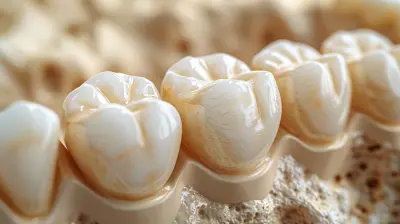The Role of Self-Care in Strengthening Immune Health
24 July 2025
Ever heard the phrase "you can't pour from an empty cup"? That’s the essence of self-care, and believe it or not, your immune system is the cup in this case. When life gets hectic, self-care often becomes the first thing we toss aside. But here's the kicker — your immune system relies on how well you take care of yourself.
Our bodies aren’t machines. They’re more like gardens. You can’t expect a flower to bloom if you don’t water it, give it sunlight, and remove the weeds. Similarly, your immune system thrives when you give it what it needs: rest, nutrition, movement, and emotional balance.
Let’s take a deep dive (without the jargon overload) into how self-care plays a crucial role in boosting immune health — because keeping your immune system strong doesn't have to be rocket science.
What Exactly Is Self-Care?
Let’s get one thing straight: self-care isn’t just bubble baths and scented candles (although they sure don’t hurt). It’s a combination of daily practices that help you stay physically, emotionally, and mentally healthy.Think of it as a toolbox with different compartments — sleep, diet, physical activity, stress management, hydration, social connection, and even joy. Yep, your immune system notices all of it.
How Your Immune System Works (Briefly, I Promise)
Okay, quick biology 101 — your immune system is your body’s defense force. It’s made up of a network of cells, tissues, and organs that work together to fight off harmful invaders like viruses and bacteria.But like any defense force, it needs proper training, maintenance, and support. If it's running on empty — due to stress, poor sleep, or junk food — its performance takes a hit. That’s where self-care comes in as the ultimate immune booster.
Sleep: The Unsung Hero of Immunity
Let’s kick things off with sleep. Did you know that while you’re snoozing, your body is sending out immune cells like little night-shift workers? They identify threats, repair cells, and regulate inflammation — all while you’re dreaming about that beach vacation you never took.If you’re skimping on sleep — say, less than 6 hours a night — your immune response gets sluggish. That means if you catch a cold, it might linger longer, hit harder, or make you feel utterly miserable.
How to Improve Your Sleep Game:
- Stick to a sleep schedule (yes, even on weekends)- Keep your bedroom cool, quiet, and dark
- Ditch screens at least 30 minutes before bed
- Try meditation or deep breathing if your mind races at night
It’s about quality, not just quantity. Getting those solid ZZZs is like giving your immune system a backstage pass to full recovery mode.
Nutrition: Fueling Your Immune Army
You wouldn’t expect a car to run on soda, right? Your body’s the same. What you eat directly impacts how well your immune system functions.Your immune cells need vitamins, minerals, antioxidants, and other nutrients to function at their peak. When your diet is packed with sugar, processed foods, or lacking in key nutrients, your immune system has to work harder — like trying to fight off invaders with a pool noodle instead of a sword.
Immune-Boosting Nutrients to Load Up On:
- Vitamin C: Found in oranges, berries, broccoli, and bell peppers- Vitamin D: Sunshine is the best source, but supplements and fortified foods help too
- Zinc: Found in nuts, seeds, lentils, and whole grains
- Probiotics: Yogurt, kefir, sauerkraut, and other fermented foods
- Antioxidants: Dark leafy greens, berries, and colorful veggies work wonders
Simple rule of thumb? Eat the rainbow. Not Skittles — we're talking spinach, beets, carrots, blueberries, and all their vibrant friends.
Movement: Exercise as Your Body’s Natural Energizer
Exercise isn’t just about looking good in jeans — it actually helps your immune system stay agile and responsive. Moving your body boosts circulation, which allows immune cells to travel more freely and do their job more effectively.You don’t need to train for a marathon either. Moderate, consistent movement is the sweet spot.
What Counts as Immune-Friendly Movement?
- Brisk walking for 30 minutes- Yoga or stretching
- Dancing in your kitchen (seriously, it counts)
- Biking, swimming, or light jogs
Too much can backfire though. Intense, grueling workouts (especially without recovery) can temporarily weaken your immune response. So find a balance that feels good — not punishing.
Stress: The Silent Immunity Killer
Here’s a biggie — chronic stress is like an invisible burglar that breaks into your immune system and robs it of energy. When you’re constantly in “fight or flight” mode, your body pumps out cortisol, a stress hormone.While cortisol can be helpful short-term, too much of it over time weakens your immune defenses. You become more vulnerable to viruses, inflammation, and even chronic illnesses.
Practical Stress-Busters That Actually Work:
- Deep breathing (inhale for 4, hold for 4, exhale for 4)- Journaling your thoughts and feelings
- Spending time in nature
- Listening to calming music or a funny podcast
- Saying “no” to things that drain you
Don’t underestimate the power of a laugh, a walk with a friend, or just doing absolutely nothing. Giving yourself permission to chill is immunity gold.
Hydration: The Simplest Self-Care Habit
Water plays a surprisingly huge role in immune health. It helps flush toxins out of your body, keeps your mucous membranes (the first line of immune defense) moist and ready to trap invaders, and supports the transportation of nutrients.If you’re walking around dehydrated, your body has to work twice as hard. Think of water as the oil that keeps your immune engine running smoothly.
Hydration Tips:
- Aim for 8–10 cups a day — more if you're active- Infuse water with lemon, cucumber, or berries if plain water bores you
- Carry a water bottle everywhere (out of sight, out of sip)
It’s a small habit with a big ripple effect on your overall health.
Connection: The Immunity Power of Human Bonds
We’re wired for connection. Loneliness isn't just emotionally painful — it can actually harm your immune system. Studies have shown that people who maintain strong social ties tend to have better immune responses and recover faster when they do get sick.Spending time with loved ones, even virtually, can have a measurable impact on immune health. It lowers cortisol, increases “feel-good” hormones like oxytocin, and supports emotional resilience.
Ways to Stay Socially Nourished:
- Call or video chat a friend- Join a local group or online community
- Volunteer (virtual or in-person)
- Schedule regular "catch-up" dates with your people
Your immune system thrives on love, laughter, and belonging — who knew?
Joy & Purpose: The Overlooked Self-Care Pillars
Let’s not forget the magic of doing things that make you feel alive. Hobbies, laughter, creativity, meaningful goals — they all light you up from the inside. And while it might sound a little woo-woo, there’s real science behind it.Positive emotions have been linked to stronger immune responses. When you feel purposeful, inspired, or simply happy, your body releases endorphins and other feel-good chemicals that boost immunity.
So whether it's painting, playing an instrument, gardening, or writing bad poetry — go for it. Your immune system is cheering you on.
Building a Self-Care Routine That Sticks
Here’s the truth: self-care isn’t a “quick fix” — it’s a lifestyle. But it doesn’t need to be overwhelming either. Start small. Focus on one or two habits that feel doable and build from there.A Simple Daily Self-Care Checklist for Immunity:
✅ Slept at least 7 hours✅ Moved your body (even just a walk)
✅ Ate a balanced, colorful meal
✅ Drank enough water
✅ Took a few deep breaths
✅ Connected with someone
✅ Did one thing you enjoy
It’s not about being perfect — it’s about consistently showing up for yourself.
Final Thoughts: Self-Care Isn’t Selfish — It’s Survival
We tend to overlook self-care until we’re already burnt out or sick. But what if we flipped the script and made it the foundation of how we live? Your immune system works for you 24/7 — it deserves a little love in return.So the next time you feel guilty for turning off your phone, skipping a party for an early night, or spending extra time cooking a healthy meal, remember this:
You're not wasting time — you're investing in your health.
When you treat self-care like your immune system’s best friend (because it is), you give your body everything it needs to keep you strong, healthy, and resilient.
So go ahead — take that nap, eat that salad, call that friend, and dance like nobody’s watching. Your immune system will thank you.
all images in this post were generated using AI tools
Category:
Healthy HabitsAuthor:

Jackson Mahoney
Discussion
rate this article
1 comments
Mira McCarty
This article effectively highlights the importance of self-care in boosting immune health. By emphasizing balanced nutrition, regular exercise, and stress management, it provides valuable insights for readers looking to enhance their overall well-being.
August 6, 2025 at 2:32 AM

Jackson Mahoney
Thank you! I'm glad you found the article insightful. Self-care truly plays a vital role in supporting our immune health.


